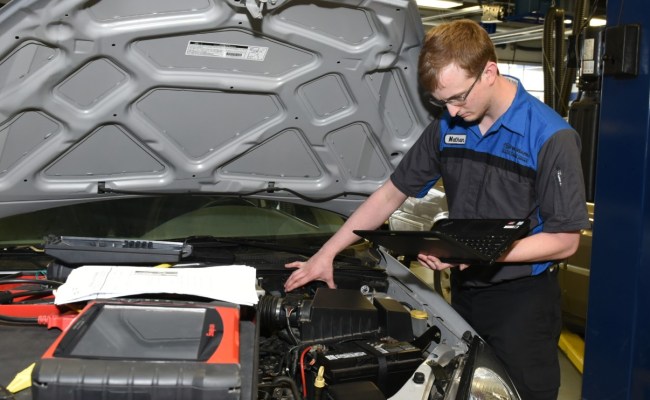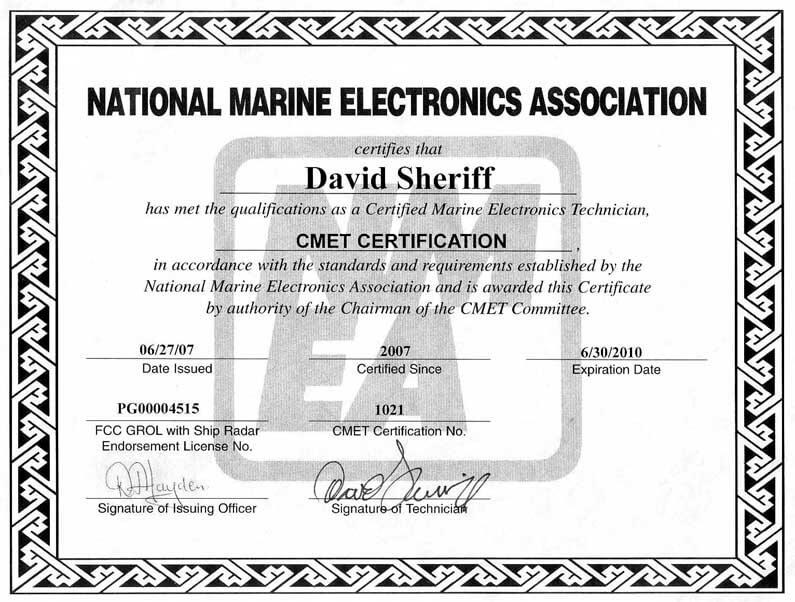
There are many programs that can be accredited in Kansas if you're interested in learning auto mechanics. The National Automotive Technicians Education Foundation is accredited to many Kansas programs. This includes programs in truck and engine mechanics, body repair and specialized automotive technology. You can also select a program that is focused on a particular manufacturer. You have the option of a certificate program or an associate degree that lasts two years. Kansas' Automotive Youth Educational Systems also allows you to get a certification.
JCCC
JCCC is a community college that offers a program in auto mechanics for four-semesters. Transfer credits can be obtained from other institutions for students who have an academic background in this field. JCCC students can also transfer courses earned at another college or university. The university's program culminates with a bachelor's degree. Students who have already completed the program can transfer to Pittsburg State University, Fort Hays State University or Kansas State University.
The Automotive Technology Repair Certificate aims to teach individuals basic maintenance and repair skills. The course consists of 60 credit hours of coursework that prepares students to become qualified automotive technicians. If you are interested in light repair and maintenance, you can also get a certificate for automotive technology maintenance. The certificate program takes 26 hours of training and is designed for technical knowledge in minor repairs and maintenance. Students at JCCC can also earn dual credit through the program.

Washburn Tech
Washburn Tech's automotive technician program prepares students for all types of vehicle repairs. This hands-on, modern program combines classroom and practical training with the latest technology. Students have the opportunity use modern diagnostic tools and to repair late-model cars. Students receive all the necessary tools and equipment needed for the job. The program also includes hands-on learning and community service projects.
The program requires that students be at least 16 years old and not in their final year of high school. To complete the application process students will need to complete an application, recommendation form and submit a transcript from high school. They must also pay the $20 enrollment fee and any other fees that are required to attend the school. The WorkKeys Entrance Test must be passed by students to be admitted to the program. Students can begin the program after they have met all the admission requirements.
Pratt Community College
Pratt Community College's automotive program emphasizes hands-on learning. Students have access to state of the art equipment. They work in a full-service engine shop, employ a transmission motorometer, and utilize the latest electronic diagnostic tooling and tire alignment technology. All faculty members are ASE certified, and they continue to be educated about new technologies. Although classes can be quite large, students have the opportunity to learn from industry professionals. Students will be prepared for a successful career.
Pratt Community College has two programs that can be tailored to the needs of potential students. The academic program gives students the opportunity to earn two academic credit and prepares them for transfer to a four year institution. Students can also take technical and career courses to prepare them for entry into the workforce. Graduates of these programs receive an associate degree or certificate. The program that students choose will determine their success.

Pittsburg State University
Pittsburg State University offers excellent training for auto mechanics. Its Automotive Technology Department offers a 4-year degree in automotive technology that is perfect for someone who wants a career in an entry level or upper management role. This degree is very popular with employers. Employers especially love graduates who have worked in larger metropolitan areas. Pittsburg State University students have the opportunity to choose from six distinct emphasis areas.
The school offers many programs and majors that will help students to pursue a career in this field. The college is an industry leader in automotive technology education. Students can earn their certificate or degree in a variety of fields including auto repair, engine performance, suspension, steering, brakes, and more. It also offers large community service programs. Students can also earn a two-year associate's degree in automotive technology at Manhattan Area Technical College, Wichita Area Technical College, Washburn Institute of Technology, Olathe Advanced Tech Center, and Hutchinson Career and Technical Education Academy.
FAQ
What's the difference between a mechanic and an automotive technician?
Although they may be similar, they are not identical. An automotive technician maintains cars, while a mechanic repairs them.
A mechanic should be able to do simple tasks quickly and have good manual dexterity. A mechanic must be able diagnose and fix problems quickly and accurately.
An automotive technician requires more technical skills than a mechanic. They should be able read blueprints and use tools like drills and wrenches.
They must also be able to carry out complex procedures safely. They must be familiar with all types of electrical and engine systems.
They must also be able to understand how various parts interact with each other.
This means that mechanics usually make less money than automotive technicians. However, both careers offer great opportunities.
What qualifications are required to become a mechanic
To become a technician, you will need to pass a series exams. These include:
-
A general knowledge test
-
A practical exam
-
An apprenticeship test
These tests are meant to help you grasp the fundamentals of mechanical engineering and physics, before you begin your journey as a mechanic.
Once you pass these tests you can become a mechanic. You'll still need an apprenticeship. This will involve trade training.
You'll need to attend classes and workshops to learn everything you need to know about repairing vehicles. It will be necessary to work alongside experienced mechanics.
For mechanic success, you'll need to be focused and meticulous. You will need to pay careful attention to every aspect when repairing vehicles.
To be a successful mechanic, you will need patience and perseverance. If you don’t enjoy following instructions, this might not be the right career path.
This job is for you if you are passionate about cars and love fixing them.
What are the basics of car mechanics?
To work as an auto technician, you don’t need to know much about cars. Only you need to know how things work. Most people start by fixing things like changing tires or fitting brake pads.
You'll need the ability to read and understand diagrams and to follow simple rules of good practise. You must also be able judge if parts need to replaced or repaired.
You should not attempt to fix vehicles without proper training and guidance. This is especially important if you work with expensive parts such as transmissions or engines.
Although you won't have to know much about automobiles, you must be familiar with the basics of mechanical engineering as well as physics. This is how you understand the mechanisms behind engines and brakes.
Noting that all situations are possible, it is important to be prepared. For example, you may find yourself working on a vehicle that has been involved in a serious accident. Also, you'll need to be familiar with dealing with accidents or breakdowns.
You must also be willing to learn quickly. Not only will you need to be capable of diagnosing problems, but you also need to be able perform simple maintenance tasks like tightening nuts.
What qualifications do you need to be a truck-mechanic?
Although you don’t have formal qualifications, you have extensive experience with engines and trucks. You are a valuable asset as you can quickly diagnose and solve problems efficiently.
Additionally, you have a solid knowledge of diesel technology that will enable you to determine what parts are necessary to repair our vehicles.
What are the qualifications for an automotive technician
You must have high school, or GED, and be able to read and write well in English and math. Additionally, you will need to be proficient in reading and writing. You will need to pass a written test and then go through a series of practical exams before being allowed to start work.
Does it matter where I go to college?
Not really. There are no differences between colleges when it comes to getting into the automotive industry. Some schools have better programs than others, so you might want to look elsewhere if your goal is something more specialized.
How do I prepare to be a mechanic apprentice?
It is important that you understand the ramifications of your actions. It is important to know the basics of how cars work. This will help you to plan your first day in the garage.
You will also need to learn how to fix simple problems like tires and broken lights.
These lessons will help you to identify and fix problems.
For the purpose of putting them back together again, you'll need to be able to identify how each piece fits together.
Finally, it is important to know how tools can be used safely and efficiently.
All these aspects will help you become a competent technician.
Statistics
- There were 749,900 jobs available for automotive service technicians and mechanics in 2016, which is expected to grow by six percent through 2026. (jobhero.com)
- 52% of Mechanics in the United States think their salaries are enough for the cost of living in their area. (indeed.com)
- According to the BLS, total auto technician employment is expected to exceed 705,000 by 2030. (uti.edu)
External Links
How To
How to get a mechanic certification
The mechanic's certifications are designed for people who want to become certified as professional automotive technicians. These certifications provide an overview of all aspects of auto repair including engine diagnostics and electrical systems, brakes. steering. fuel injection. air conditioning. heating. exhaust. diagnostic tools. body repairs. collision damage repair. collision repair. paintless dent removal. motor vehicle emissions testing.
The program is composed of 12 hours classroom instruction and three month's on-the-job training at participating dealers. The semester must include at least 60 hours of classroom instruction and passing a written exam that includes theory and practice questions. After completing the coursework, students can take the National Institute for Automotive Service Excellence’s (ASE) state examination. Automotive service technicians must be certified by ASE.